Migrants feel chill as Europe tightens frontier checks
- Published
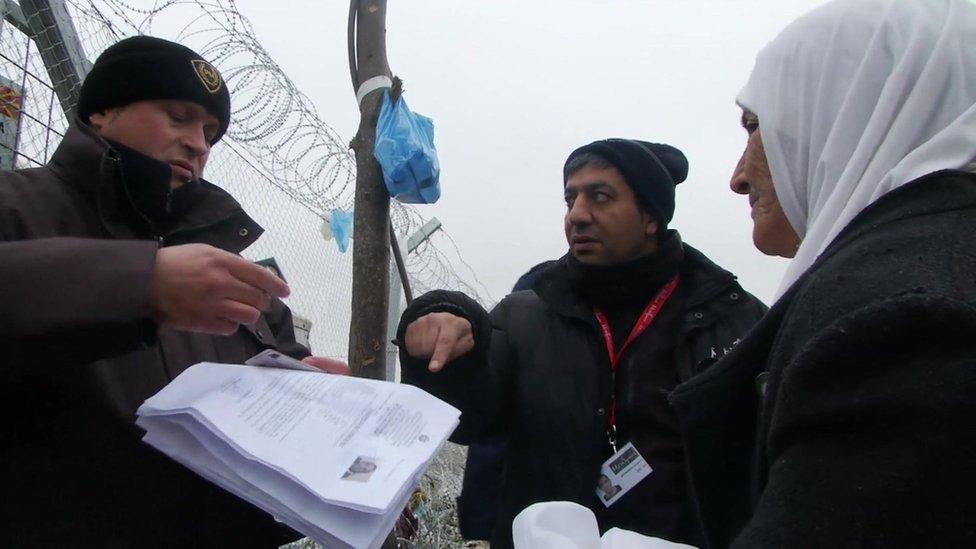
Macedonian border guards are on the look-out for fake travel documents
Running in looping coils, razor-wire now stretches along part of Macedonia's border with Greece.
At every border along the refugee trail, through Macedonia, Serbia, Croatia, Slovenia, Austria, Germany, Denmark and Sweden, the welcome is cooling, the checks are getting tougher, and people are being turned back.
Here at Idomeni there is just one small gate, right by the railway line, where refugees can pass.
A Macedonian policeman, with a magnifying glass in hand, stands by it, scrutinising the documents of every single person attempting to cross.
The refugees wait in line for their turn.
"You, you can pass," the policeman says to a family with small children. They shuffle through.
"You. No," says the policeman to a young Middle Eastern man. He turns back.
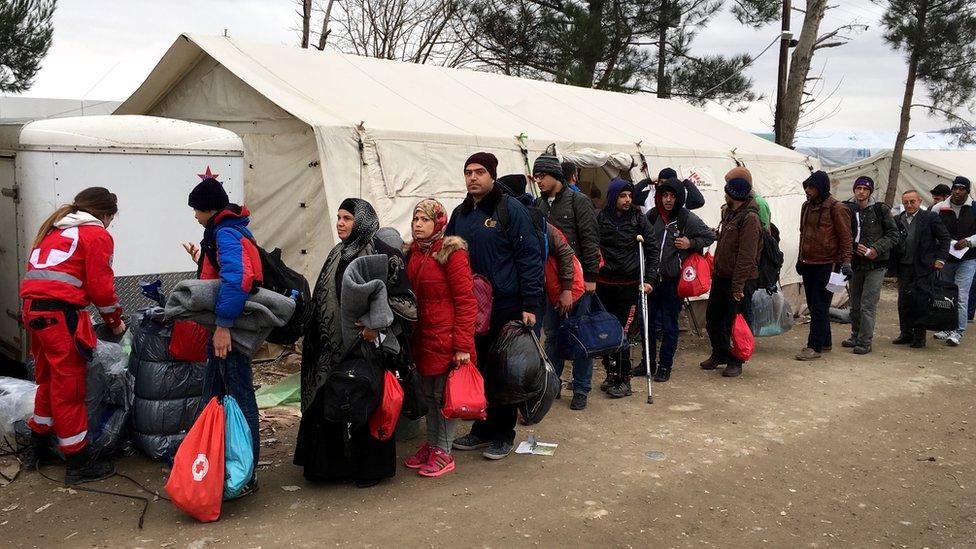
Refugees queue up at the border but only those with proper papers are allowed through
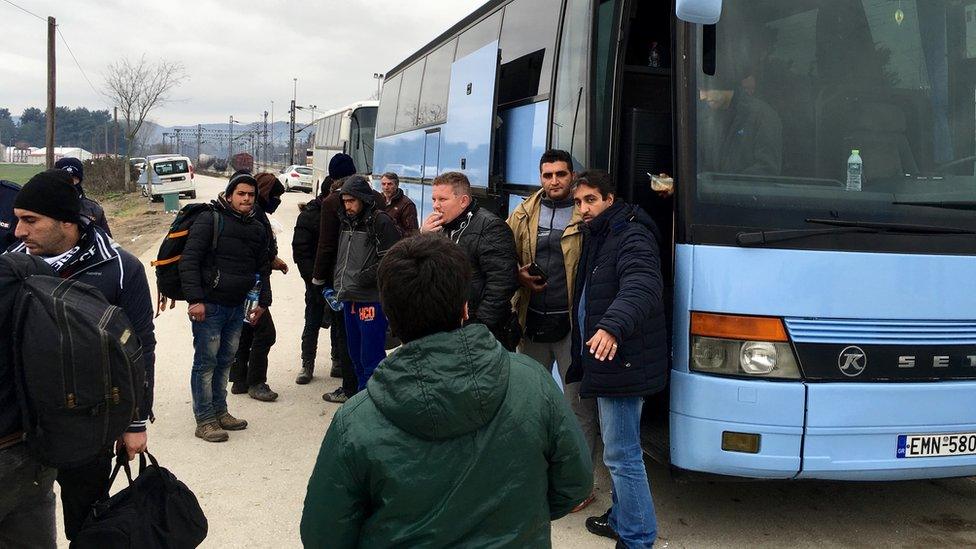
Those denied entry to Macedonia are put on a bus back to Athens
Young men in particular are facing more scrutiny. Those fleeing conflicts in Syria, Afghanistan and Iraq are supposed to be allowed through. Everyone else is being stopped.
Just a couple of seconds are spent peering at each set of papers.
"You. No valid documents," says the policeman to an old lady in a headscarf. "This is fake," he adds, holding her identity card.
It says she's Syrian. She speaks no English and looks confused.



Macedonian soldiers lean against a vehicle watching, guns slung from their shoulders. A UN refugee agency staff member standing nearby does not intervene.
Many who are not from Syria, Afghanistan and Iraq are now trying to get through with forged papers. Sifting the genuine refugees from impostors isn't easy.
One group showed their Syrian passports, but their identity papers obtained in a Greek refugee camp did not have the proper stamps. Among them was a man, limping, his leg set in a metal brace.
"You have to go to Athens, get papers there," a Greek policeman told him. Athens is 500km (310 miles) to the south.
But those denied passage are not deterred easily. In the woods near the border we found dozens of migrants, camping out.
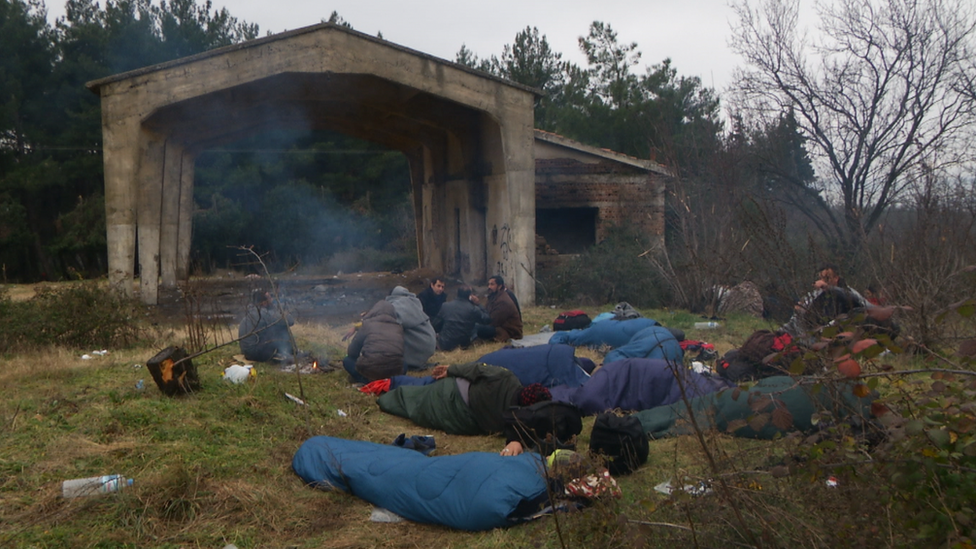
Many migrants, determined to continue their journey, are left to fend for themselves
They were outside in freezing temperatures, hiding from the police, preparing to skirt the official crossing, to enter Macedonia illegally.
There were Libyans, Iranians and Moroccans, along with Indians, Somalis, even a refugee from Western Sahara who had crossed North Africa hanging on to the underside of a truck.
They were all wrapped in blankets to protect themselves from the cold. One man, singing a lament, was from Afghanistan.
But he was darker-skinned than most Afghans, so the Macedonian border guards had refused to believe his papers and turned him back too.
'A better life'
Among a group of Pakistanis warming their hands by a fire we found Sami from Lahore. He'd worked as a chef in a restaurant. But, he said, his boss rarely paid him, so he had left his wife and three-year old son behind to make this journey.
"It's very hard," Sami told me. "It's cold. I have no food, no drink, no money in my pocket, all finished."
He has spent $4,000 (£2,770; €3,700) and 15 days in jail in Turkey to get this far. So, he says, he can't give up now.
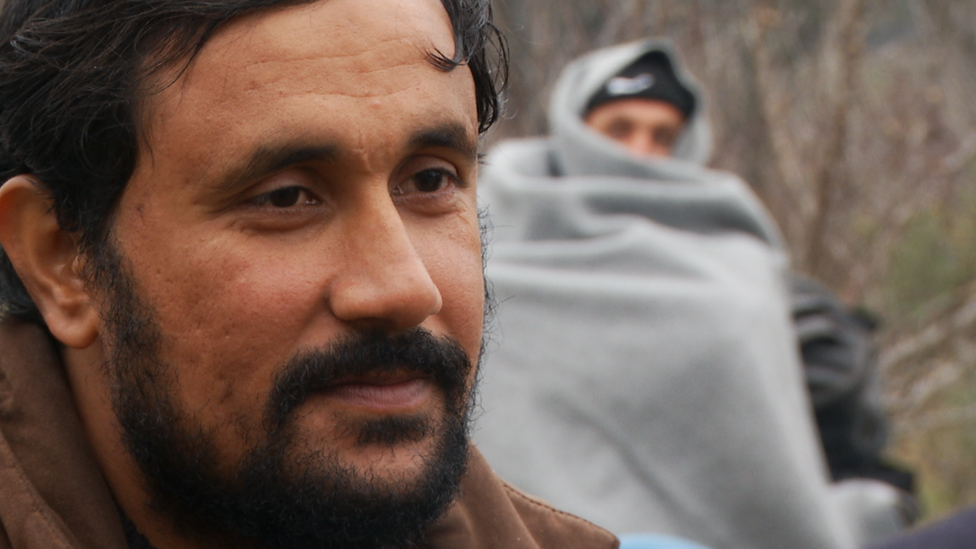
Sami refuses to give up hope, saying he wants a better life for his young son
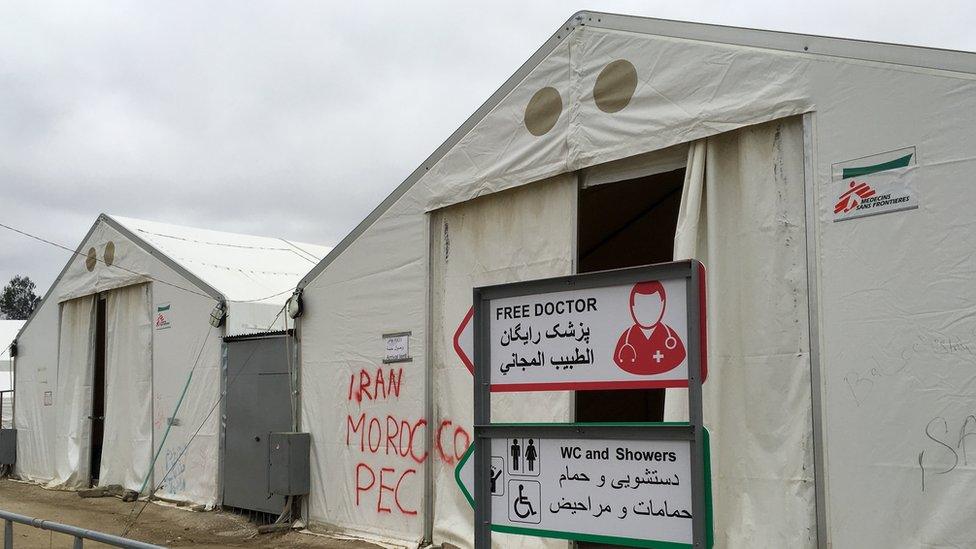
Aid camps in Macedonia lie empty, with Greek police blocking access
Twice already Macedonian police have detained Sami and sent him back to Greece, all the way to Athens. Such push-backs are illegal. And they do little to deter the migrants.
Sami insists he'll keep trying. "I don't care about my life. But I want a better life for my son," he says.
A short distance away, at the official border crossing, huge, heated tents put up by aid agencies stand empty. There are cooking facilities to provide hot food, and showers with hot, running water.
But there are no migrants here.
"At the moment they don't have the possibility of using these facilities," says a frustrated Andre Moret from Medecins Sans Frontieres, which has spent millions building this camp.
"For us as humanitarians this is unacceptable, clearly unacceptable."
Greek police are keeping all migrants away from the camp, perhaps to prevent it becoming permanent, or maybe concerned to keep the nearby railway line from being blocked.
Late last year, migrants angered when they could not cross to Macedonia halted all railway traffic. The line carries large amounts of valuable freight every day.
So the migrants, who are cold, hungry and some in need of medical help, are left to fend for themselves.
"We can't manage to have this camp re-opened by the authorities, we don't know why," says Andre. "For us it's difficult to understand and accept."
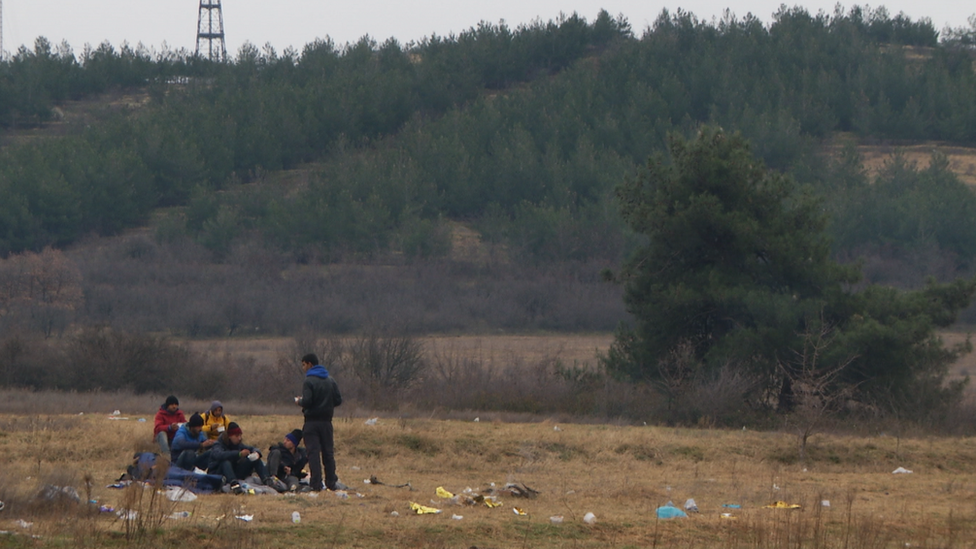
Some migrants choose to sneak across the border with help from smugglers
Just after nightfall we returned to the woods. Sami and the Pakistanis had already set off to cross the border illegally.
Seizing the moment
And in every abandoned building we found others waiting to follow: Egyptians, more Afghans, and Algerians.
Wahid and his friends from Algeria were waiting for a smuggler to help them sneak into Macedonia.
"It's just a question of wait and try, wait and try, wait and try," he says. "Never get down, take every chance you have. You have to change something in your life."
So this is becoming Europe's new problem. Along with those fleeing conflict many more are also seizing this moment, attempting to reach richer countries to the north.
Smuggling is on the rise again.
Greece keeps no exact figures of how many are turned back at its northern border, or who then trying to cross illegally.
It has no real policy to deal with the problem, and little capacity to stop such determined people. But growing numbers are seeking to pass. And this is winter.
When the weather warms, yet more may try.
- Published4 March 2016
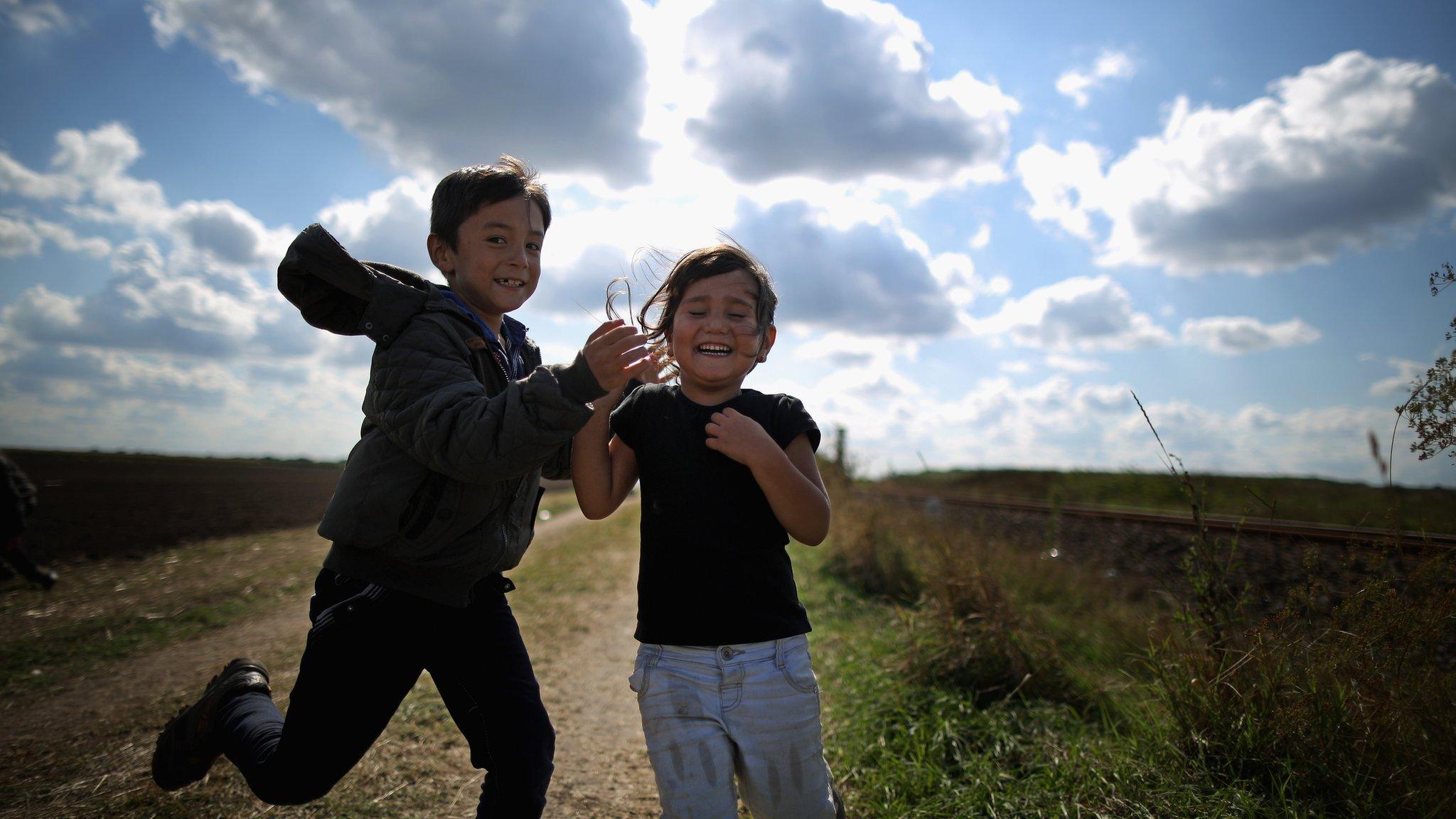
- Published24 December 2015
- Published23 April 2015
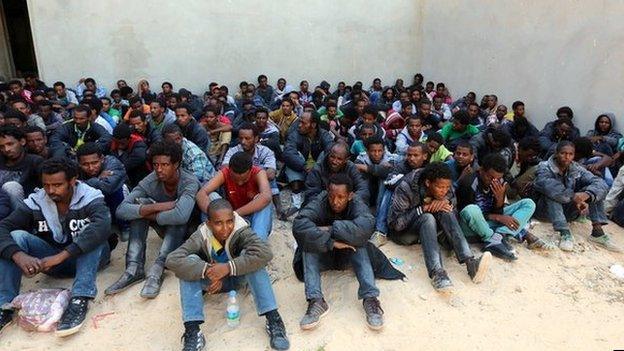
- Published26 October 2015
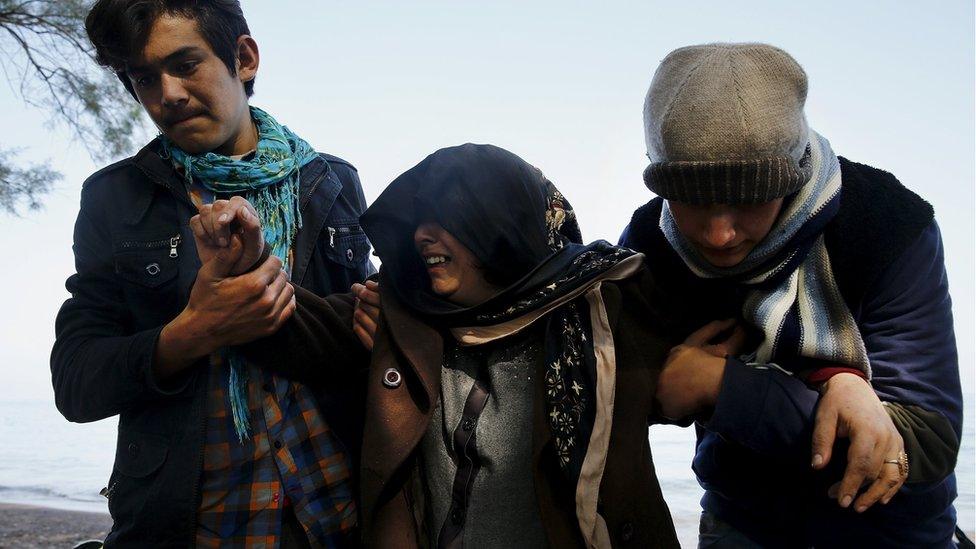
- Published11 January 2016
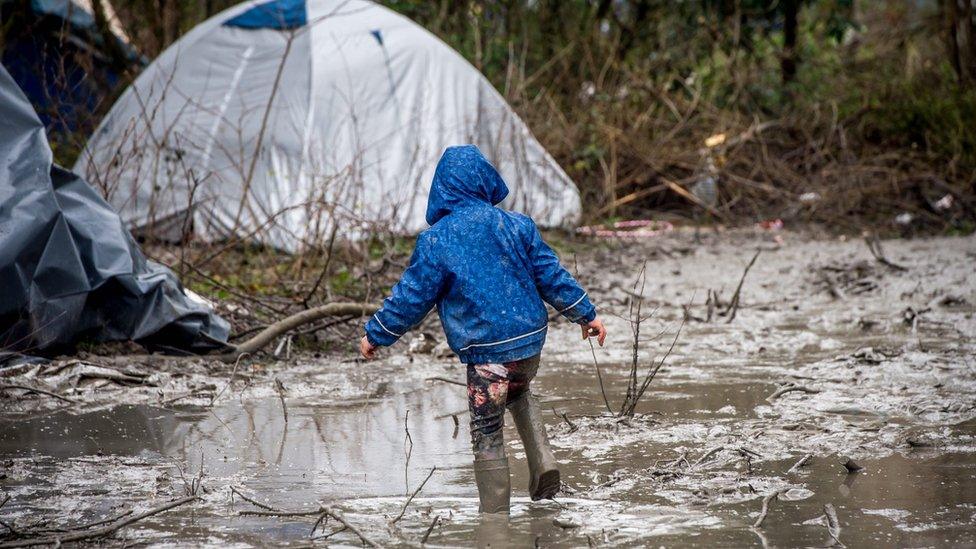
- Published11 January 2016